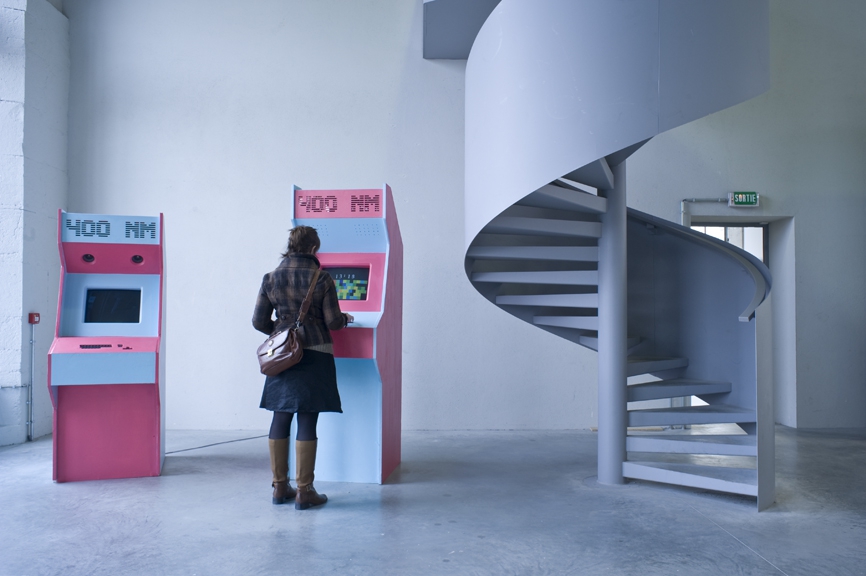 Installation à l'Esadse - Photo S.Binoux
Installation à l'Esadse - Photo S.BinouxInstallation à l'Esadse - Photo S.Binoux
To be part
of an exchange
with the Esadse
How to apply
International affairs team :
Josyane Franc
Head of International affairs : Cité du design & ESADSE
Erasmus Coordinator Referent for Erasmus agreements
josyane.franc@citedudesign.com
Tel. 33 (0)4 77 47 88 03
Maria Moreira
Executive officer for International Affairs. Assistance for visa, insurance, daily life
mobility@esadse.fr
Tel. 33 (0)4 77 47 88 56
APPLICATION FILE
Students are selected and proposed by their home institution to the ESADSE. In order to come as a mobility student you must be nominated by your home institution. You must send an application file composed of:
- application form
- CV
- cover letter
- portfolio (5 detailed projects maximum)
- 1 identity photograph
There is no age limit to apply for an exchange.
Deadlines to receive applications at ESADSE are:
- May 15 for the 1st semester (autumn semester)
- November 15 for the 2nd semester (spring semester)
Course catalogue FR
Abstract Brochure FR/UK and Course catalogue UK
FRENCH LANGUAGE REQUIREMENTS
As lectures are mostly given in French, a good knowledge of French is highly recommended. The French Language Knowledge Test (TCF) is also recommended. The school requires all students to produce evidence of their English ability. French courses are given throughout the year (2 hours /week) at ESADSE.
ECTS SYSTEM -European Credit Transfer & Accumulation System
Foreign students are integrated in the normal curriculum and attend courses chosen with their school. They must obtain a number of ECTS credits defined by their home institution. ECTS was developed by the European Community Commission to set up common procedures to guarantee the academic recognition of studies. The ECTS system is a student-centered system based on the student workload required to achieve specified learningoutcomes in a study programme. ECTS is based on the principle that 60 ECTS measure the workload of a full-time student during one academic year. Thestudent workload of a fulltime study programme in Europe amounts to around 1.500-1.800 hours per year and in these cases one credit stands for around 25 to 30 working hours. Credits in ECTS can only be obtained after successfulcompletion of the work required and appropriate assessment of the learningoutcomes achieved. Student workload in ECTS consists of the time required tocomplete all learning activities such as attending lectures, seminars,independent and private study, preparation of projects, examination, etc.Credits are allocated to all educational components of a study programme andreflect the quality of work each component requires to achieve the learningoutcomes in relation to the total quantity of work necessary to complete a fullyear of study successfully.
Evaluation for Exchange students for one or two semesters
At the semester evaluation, exchange students present their work to teachers individually and collectively. This display/exposition is coordinated by mentor. Responsible teachers of the classes that the students attended give an appreciation, the credits and the grade. International affairs service and mentor provide the defined transcript with precise title of class, name of teacher, credits, grade, appreciation and signature of the director. It will be sent as soon as possible: to the pedagogic service, who integrates credits and grade in the student's document; to the home establishment; to the student
